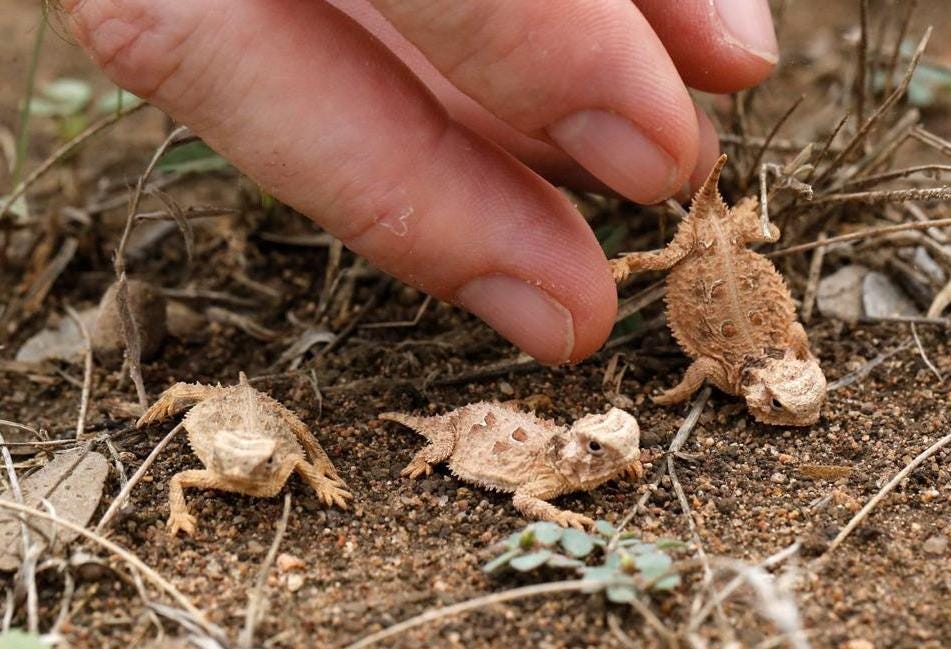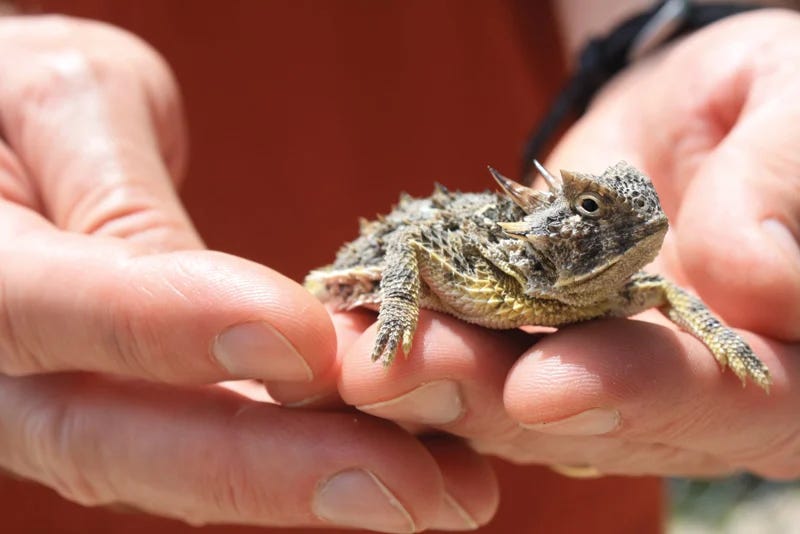RESTORING GLORY
While the TCU Horned Frogs have returned to football prominence, their name-sake lizard is still struggling to survive
A partnership between TCU, Texas Parks & Wildlife and zoos across the state, baby horned lizards are being released at Mason Mountain Wildlife Management Area and on South Texas ranches. But, efforts to restore the State Lizard of Texas face dozens of challenges.
“There are a lot of factors that go into horned lizard breeding — you can’t just throw them in a pile and expect them to mate. You have to look at genetic relatedness to prevent inbreeding, and they have to be around the same size. And sometimes, the females are picky and just don’t like the male. If that happens, she just won’t cooperate.”
Diane Barber, Fort Worth Zoo
Sadly, horny toads, aka horned frogs and horned lizards, are a rare site in East, Central, North and South Texas. They are still common in West Texas in areas west of Abilene. Most Temple residents under the age of 40 have never seen the once-abundant animal.
Scientists, researchers hoping for big comeback win for State Lizard of Texas
DAVID STONE | OUR TOWN TEMPLE
It’s been 85 years since TCU won its second national football championship, and on Jan. 9 the Horned Frogs will try to re-establish itself as the nation’s best. Unfortunately for Texas’ other “horned frogs,” their comeback remains in jeopardy.
Some folks call them horned frogs, others know them as horny toads, and the scientific community refers to them as horned lizards, which is the correct terminology. But whatever the name, most people over 40 remember the flattish spiked lizard fondly. Sadly, most people under that age have never seen one.



